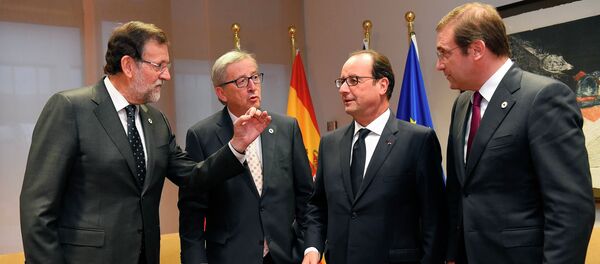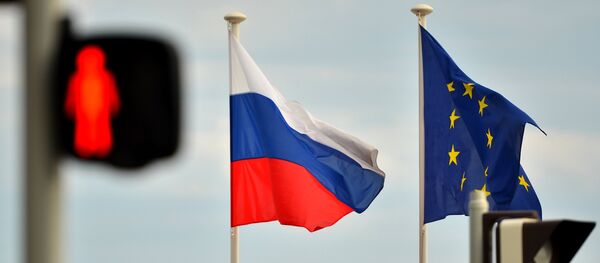In August, Russia has limited food imports from the countries that had previously introduced sanctions against Moscow for alleged participation in the Ukrainian crisis. The restrictions were put on meat, dairy products, seafood, vegetables and fruits.
"It is an economically reasonable policy… The statistics shows a significant increase in the production of cheese, butter, cottage cheese. The meat growth is slower, but next year it will increase," the minister said during his interview with Komsomolskaya Pravda.
US sanctions are for decades, European ones may have different fate
The minister said earlier that the Ukraine Freedom Support Act, adopted by the US and authorizing the country’s president to introduce new anti-Russian sanctions, would be a problem for decades.
"Yes, I believe that the adoption of the federal US law to support Ukraine and imposing sanctions against us — it is a problem for decades. But how significant it will be for us? The volume of our relations with the United States is small," continued the minister.
Europe accounts for about 60 percent of Russian and the USA and Canada — for about 5 percent. Western countries have already introduced sanctions against a number of Russian defense and resource companies and state-owned banks, which presupposes, first of all, restrictions on funding and technology.
Speaking at Harvard University's Kennedy School of Government in September, US Vice President Joe Biden admitted that the European Union "did not want to do that. But again, it was America's leadership and the President of the United States insisting."
In response to the Western sanctions, Russia imposed a one-year ban on the import of certain foods from the United States, the European Union, Canada, Australia and Norway.




